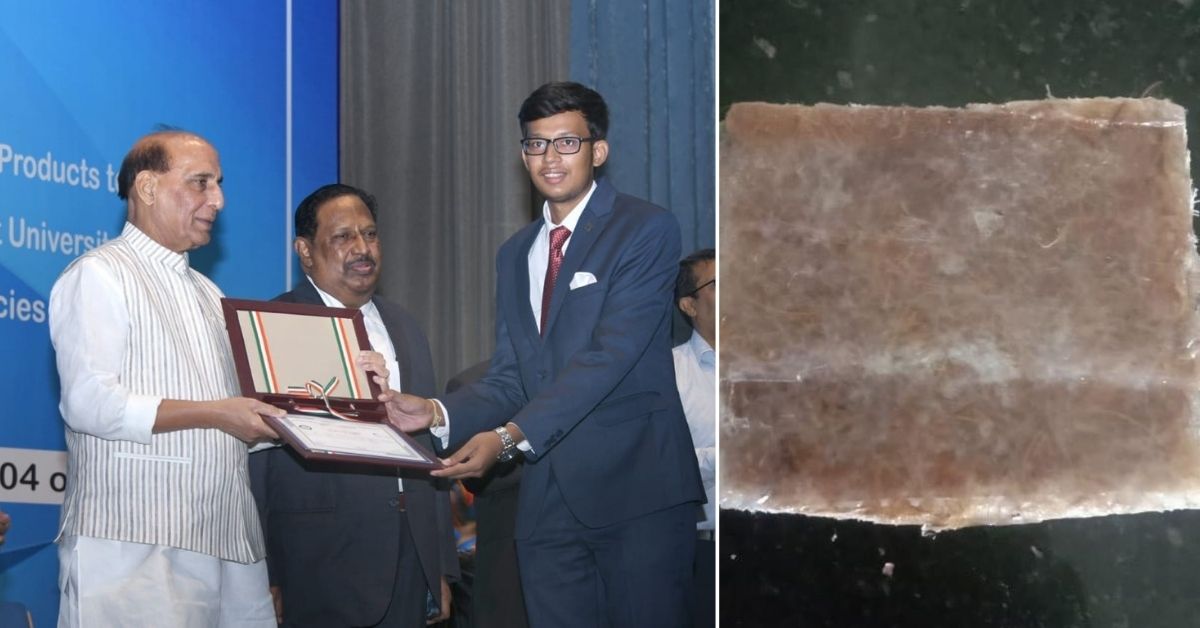From deadly crashes to runway mishaps, aircraft accidents are inevitable. In 2019, India saw over 280 deaths caused by aircraft accidents.
To minimise this damage, aircraft and other vehicles are built using a composite material like glass fibre to add tensile strength. However, these materials are flammable.
To reduce the chances of the vehicle catching fire owing to the material, Pravin Nagendran (21), a third-year Biotechnology student of Bannari Amman Engineering College, Erode began working on a plant-based alternative.
“Materials like glass fibre are made from epoxy resin which contains petroleum. This makes it highly flammable. But a plant-based epoxy resin would not only be cost-effective but also safer. Besides being used as a material for building aircrafts, it can also be used in other vehicles to prevent the risk of fire,” says Pravin, in an interview with The Better India.
A flame-resistant material
In 2019, Pravin started working on the project and began thinking of alternative elements to make composite materials. With help from his faculty members Kirupa Sankar, A Vimmalarasan, and Ravi Kumar, he spent one year identifying various biomaterials.
“After one year of research, we finalised a specific plant whose name we cannot mention,” says Pravin, adding that he had to put his project on hold for a few months owing to the COVID-19 lockdowns.
However, once he had access to his college’s laboratory, he began working on a prototype. He finalised the material within three months with help from four of his friends.
“It was made by extracting nanoparticles from the ash of the plant. This was incorporated with natural fibre composite to make a flame-resistant material. A plant-based extract was used even for binding,” says Pravin.

To test its resistance to fire, the material was heated at high temperatures. Pravin says the results showed that it was 100% resistant to fire and stayed intact. Since the material is extracted from a plant, Pravin says it is biodegradable and environment-friendly as well.
He submitted his project to the Defense Research and Development Organisation’s contest, Dare to Dream 2.0. After passing three rounds, Pravin’s project won third place among 65,000 participants and he received prize money of Rs 3 lakh.
“Now, I am working on developing the material further to improve its tensile strength. I hope to commercialise it after I am done with college and launch a startup,” says Pravin.
(Edited by Divya Sethu)
No comments:
Post a Comment